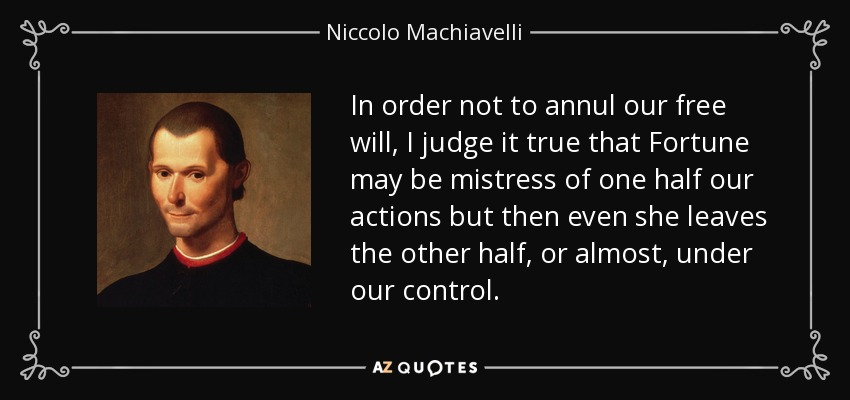In The Prince, Machiavelli uses very vivid examples and descriptions to support his point of view on how actions and destiny determine a prince’s success. In chapter 25, destiny refers to circumstances that are currently happening, which is not always in the prince’s control. Instead of taking the route that you should not work toward a particular outcome because all events are controlled by destiny, Machiavelli’s point of view in this chapter is that only half of human’s actions are controlled by destiny, and the rest is free will. Machiavelli believes that destiny is a set of circumstances that can lead to success or failure. He uses a river flood as a metaphor, stating that if the Italian princes had more suitable preparations, the “flood” of foreign invitations would not have swept over the unprotected country. Machiavelli implies that virtue is a natural quality that a prince cannot change, therefore if a prince is trying to change their actions to suit the time, they most likely will not because it is not in their nature. Machiavelli’s use of the word destiny was very notable because of the way it led to the rest of the story. When Lady Fortuna was mentioned, Machiavelli said that it is important to treat destiny like the woman she is and approach her with boldness.
Destiny/Fate in The Prince




Very interesting. Should we conclude that Destiny and Fortune are the same?
I also like the image!